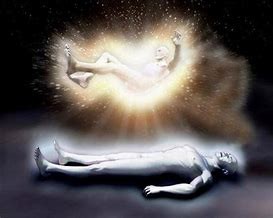Astral projection, also referred to as astral travel or soul journeying, is a concept deeply rooted in esoteric traditions where individuals intentionally experience an out-of-body journey. This phenomenon is often associated with the existence of a subtle body known as the astral body or body of light, allowing consciousness to operate independently from the physical form and explore the astral plane.
The notion of astral travel spans diverse cultures, with mentions found in ancient texts and spiritual practices worldwide. Coined and popularized by 19th-century Theosophists, the term “astral projection” has since become synonymous with intentional out-of-body experiences (OBEs). While closely linked with dreams and certain meditative practices, astral projection has also been reported under altered states induced by hallucinogens and hypnosis, suggesting a multifaceted nature to this extraordinary experience.
Scientifically, there is no substantiated evidence supporting the existence of consciousness detached from normal neural activity or the ability to consciously depart the body for observational purposes. Astral projection is commonly classified as pseudoscience due to this lack of empirical validation.

Despite the absence of scientific backing, numerous resources such as podcasts, books, and instructional materials claim to teach individuals how to induce out-of-body experiences. Often associated with lucid dreaming, where dreamers exert control over their dream scenarios, astral projection purportedly involves a shift in one’s perception of the brain-body schema.
During an out-of-body experience, the brain’s perception of the physical form is altered, leading to a sensation of detachment from the body. However, neuroscientific explanations emphasize that this perception doesn’t entail an actual departure of consciousness from the body. Instead, it’s a cognitive phenomenon wherein the brain’s normal perception of the body is momentarily altered. Despite popular depictions of astral projection as the soul departing the body for a transcendent plane, scientific understanding does not support the existence of a separate soul entity distinct from the physical body.

In a 2017 BBC Focus article, Dr. Blackmore delves into the intriguing concept of out-of-body experiences (OBEs), highlighting how disruptions to the body schema through electrical stimulation can lead the brain to lose its grasp on the physical body. This disconnection results in the mind perceiving the body as external, engendering a sense of separation.
Inducing OBEs remains a topic of debate within the scientific community, primarily because most occurrences are spontaneous and lack a predictable method of initiation. Anecdotal reports form the bulk of evidence surrounding these experiences, with no established consensus on their precise mechanisms.
Researchers focusing on this phenomenon are less concerned with the perceived division between mind and body and more interested in understanding their interconnected functionality. The abrupt disconnection experienced during OBEs parallels conditions like aphantasia, where individuals cannot conjure mental images, or synesthesia, where sensory triggers prompt involuntary cross-modal perceptions.
Sources




